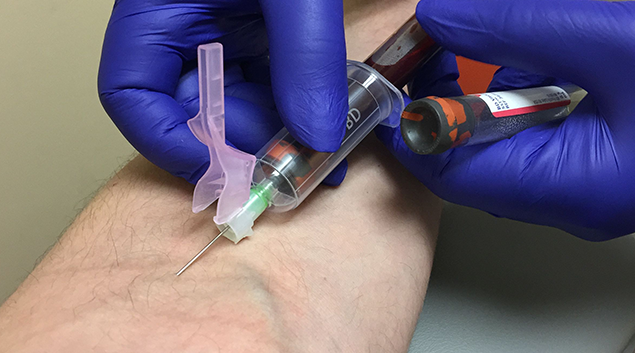Blood in Urine (Hematuria): Understanding the Causes and Seeking Treatment
Seeing blood in your urine, also known as hematuria, can be a frightening experience. The sight of red or pink urine can trigger worry, and it’s crucial to understand the potential causes and seek appropriate medical attention. This article explores the different types of hematuria, delves into the underlying reasons for blood in the urine, and emphasizes the importance of consulting a healthcare professional for proper diagnosis and treatment.
Visible vs. Microscopic Blood: Understanding the Types of Hematuria
Hematuria can be classified into two main categories based on visibility:
- Gross Hematuria: This refers to blood visible in the urine, making it appear red, pink, or even brown.
- Microscopic Hematuria: This type involves tiny amounts of blood undetectable by the naked eye. It’s usually identified during routine urine tests.
While both types warrant investigation, gross hematuria is often more alarming and prompts individuals to seek medical attention sooner.
Causes Unveiled: A Look at What Might Cause Blood in Your Urine
Blood in the urine can arise from various issues throughout the urinary tract, which includes the kidneys, ureters, bladder, and urethra. Here’s a breakdown of some potential causes:
- Urinary Tract Infections (UTIs): UTIs are a common cause of hematuria, especially in women. Bacteria infecting the bladder or urethra can irritate the lining, leading to blood in the urine.
- Kidney Stones: Stones formed within the kidneys can irritate the urinary tract as they pass, causing blood in the urine. You might also experience pain in the flank or lower back along with blood in the urine.
- Enlarged Prostate: In men, an enlarged prostate gland can put pressure on the urethra, causing irritation and bleeding.
- Bladder Cancer: While less common, blood in the urine can be a symptom of bladder cancer. Other potential signs include frequent urination, pain or burning during urination, and blood clots in the urine.
- Kidney Cancer: Blood in the urine can also be a sign of kidney cancer, although it’s less frequent than with bladder cancer. Other symptoms like back pain, weight loss, and fatigue might be present.
- Medications: Certain medications, such as blood thinners and some antibiotics, can cause blood in the urine as a side effect.
- Strenuous Exercise: In rare cases, strenuous exercise can cause microscopic hematuria, which typically resolves on its own.
Important Note: This list is not exhaustive, and the cause of blood in your urine can vary depending on individual circumstances. Consulting a healthcare professional for proper diagnosis is crucial.
Why Ignoring Blood in Urine is Not an Option: The Importance of Seeking Medical Attention
While some causes of blood in the urine might be benign, it’s essential to seek medical attention, regardless of the type (gross or microscopic) or the amount of blood present. Here’s why:
- Early Diagnosis: Certain conditions causing blood in the urine, like bladder or kidney cancer, require early detection and treatment for optimal outcomes.
- Identifying the Underlying Cause: A proper diagnosis helps determine the root cause of the bleeding and allows for targeted treatment.
- Preventing Complications: Left untreated, some underlying causes of hematuria can lead to serious complications.
When to See a Doctor: Recognizing the Need for Professional Help
Here are some situations that warrant immediate medical attention after noticing blood in your urine:
- Severe pain in the flank, lower back, or abdomen
- Difficulty or pain during urination
- Fever or chills
- Blood clots in the urine
- Sudden or persistent urination
Even in the absence of these alarming symptoms, it’s crucial to schedule an appointment with your doctor to discuss any instance of blood in the urine.
Frequently Asked Questions (FAQ) About Blood in Urine
Q: Can blood in my urine go away on its own?
A: In some cases, blood in the urine caused by minor factors like strenuous exercise might resolve on its own. However, it’s always best to consult a doctor to determine the underlying cause and ensure proper treatment.
Q: What tests will my doctor perform to diagnose the cause of blood in my urine?
A: Your doctor might order a urinalysis, urine culture, or imaging tests like an ultrasound or CT scan to diagnose the cause of hematuria.
Q: What are the treatment options for blood in the urine?
A: The treatment for blood in the urine depends on the underlying cause. Treatment options might include antibiotics for UTIs, medication or procedures to manage kidney stones, surgery for an enlarged prostate, or cancer treatment.




